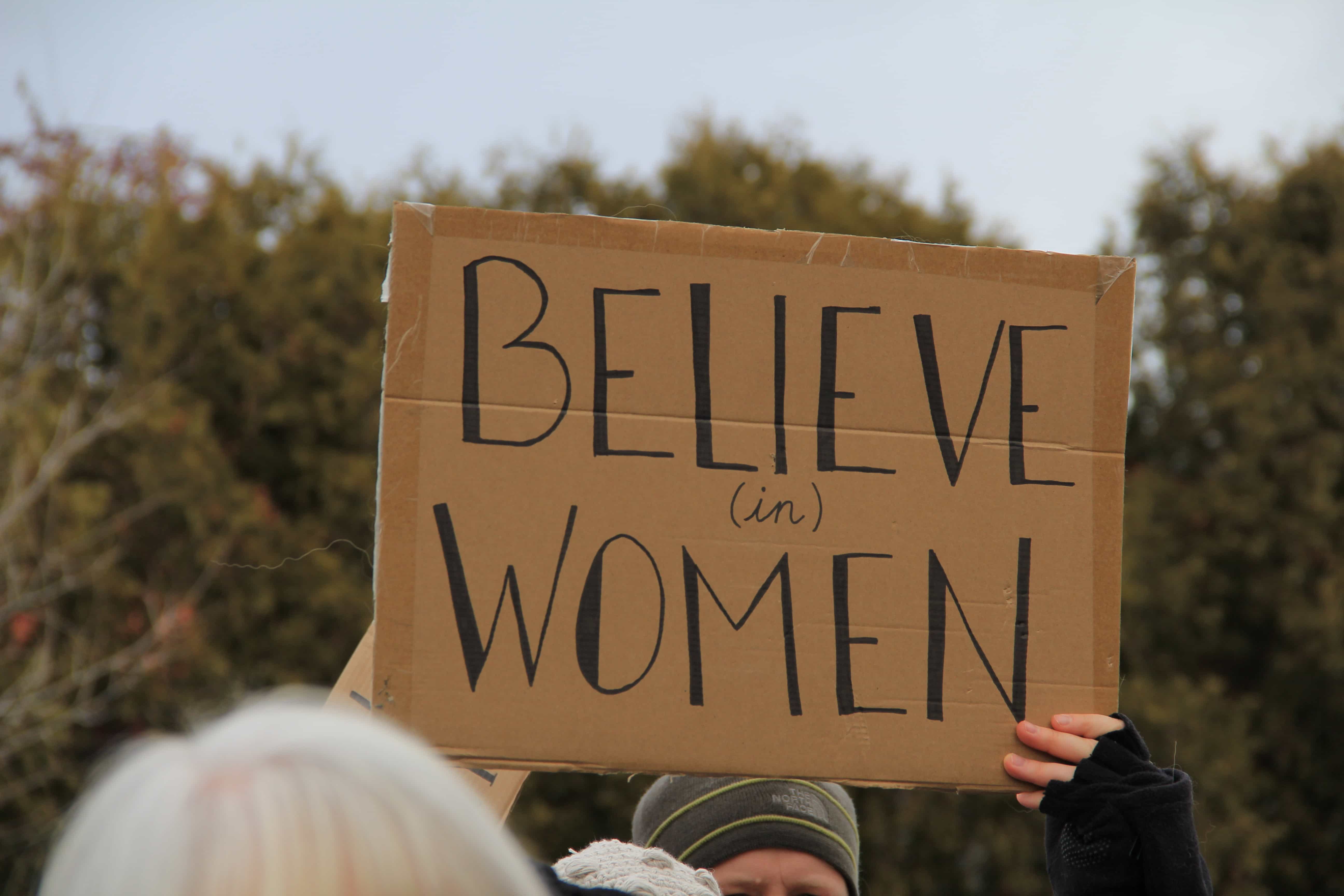By HeforShe and The Feminist Society
Recently, an Opinion column in The Sundial Press argued that sexual violence in universities is a consequence of alcohol, bourgeois norms and the women’s emancipation movements in the 1960s. The goal of the article was to prove that universities should not take part in sexual assault cases due to a perceived failure of the Title IX Act in the United States. The article blames female victims and offers problematic logic; both issues need to be addressed.
Rape in universities did not suddenly appear in the 1960s. Rape in US universities was first addressed in a sociological review “Male sexual aggression on campuses” from 1957. The reason why we hear more about assaults today than we did in the early 20th century is because women were a minority in universities, making up just 32% of students in 1950, whereas today about half of all students are female. A minority-status made raising their voice about violence difficult, especially if we consider the fact that their opportunities at universities were already limited. Increased acknowledgment of rape does not mean it is a new phenomenon, but a consequence of women feeling more empowered after the women’s emancipation movement of the 1960s.
With this in mind, the argument that emancipation leads to more sexual assaults should be rejected. Further subordinating women will not decrease sexual violence or harassment because it only encourages the belief that women exist solely for the sexual pleasure of men. Moreover, this line of thinking ignores sexual violence that also targets men as well as members of the LGBTQIA+ community. Claiming that sexual violence in universities became a problem when women gained more rights omits the prevalence of sexual violence against the LGBTQIA+ community that dates back far before the 2000’s. Increased rights and protections for marginalised communities can only act to shield them from violence, not cause it. The truth is that sexual violence tends to be a reflection of inequality, not a consequence of equality.
Another point brought up in the Opinion article engaged in victim blaming by suggesting that a woman’s intoxication is to blame for her being sexually assaulted. A woman’s inability to say no or to physically fight off an aggressor neither changes the fact that she was assaulted nor does it mean she is responsible. This narrative blames women who drink to the point where they cannot give consent, instead of calling men to not drink to the point where they supposedly lose self-control. Alcohol is not a justification for men, nor a reason to blame women.
Let’s use a real-life example. Alcohol was used to justify the actions of Brock Turner, who drunkenly assaulted an unconscious woman behind a dumpster. He only served half of his six-month prison sentence. Instead of raising awareness about a patriarchal culture or the poor education of men on how to obtain consent, he became known and respected for taking part in an anti-alcohol campaign as a way to divert blame from himself to alcohol. Can you see the problem? Besides, alcohol use is only linked to around half of campus sexual assault cases. Assault clearly cannot be reduced to alcohol use.
Here is our response to the claim that bourgeois gender norms cause sexual assault because they render women docile and unlikely to resist. Here we have another case of victim blaming, but for once, the blind chicken has found a corn — not the whole cob though. Gender roles define women as emotional and sensitive; men as aggressive and driven by sex. These norms result in phrases like “boys will be boys” used to justify the inappropriate behaviour of men. Programs like Flip the Script are valuable, but women should not, and cannot, be the only ones trying to stop sexual assault. Thus, the solution to the problem needs to address the perpetrators of sexual assault and rape culture, namely, men.
To respond to the main argument of the original article: universities absolutely have a place in campus sexual assaults. If a student is harassing or has assaulted another student, sexually or not, Sciences Po must respond to make the victims feel safe. The school has the capacity and the duty to protect the victim, especially on small campuses, by preventing daily encounters between the victim and the accused. While it can be argued that the implementation of Title IX was inefficient as universities can not act as courts, this does not mean they should be passive. The problem is poor implementation, which resulted in, for instance, a university not taking witness statements and ignoring due process before making a hasty decision to safeguard their reputation. The problem is not the principle, but how it was implemented. Victims need to be protected and believed, since a culture of not believing victims is a major reason why a majority of rapes are not reported. To empower victims to come forward, an environment of trust needs to be established. False accusations are a legitimate problem; they harm men and women. However, they are extremely rare and a false accuser is severely punished. Anywhere between 2-10% of assault accusations are false, a figure that would be lowered if more cases were reported.

2018 Women’s March in Missoula, Montana. Photo: Montanasuffragettes
Without university involvement, an assaulted student would have to go to the police and face their rapist every day at school until that person was tried and convicted. Not all victims of sexual assault have the desire or ability to carry out legal proceedings against their attacker. However, the university can support them in non-legal ways, by separating the students or offering psychological support. Institutionalising such practices allows universities to make quick and efficient decisions to protect victims. On the contrary, forcing universities to stay out of it is counter productive.
A problem perpetuated by toxic masculinity and patriarchal institutions is not one that can be solved by women on their own; they cannot shoulder all the effort. Sexual assault is not a debate, and turning it into one furthers a culture of rape that victim blames and slut shames. Women should not act alone in ending rape in universities and in all other spheres of life. It is time to hold men accountable. Primary schools, universities, parents, and society as a whole must teach boys the importance of consent.
HeforShe and the Feminist Society are two major feminist associations on campus. They like gender equality and fighting rape culture. If you continue be confused with regards to this issue, feel free to reach out to members of the association to talk about it!
Other posts that may interest you:
- The Trouble with ‘Ecocide’
- Carbon dioxide removal – hit or miss?
- Local Victories for Turkish Opposition — A Sign of Hope?
- Are France and Japan a Mismatch Made in Heaven?
- A Reflection on Dark Tourism
Discover more from The Sundial Press
Subscribe to get the latest posts sent to your email.





